DIY project: Make a garden cloche to protect your plants
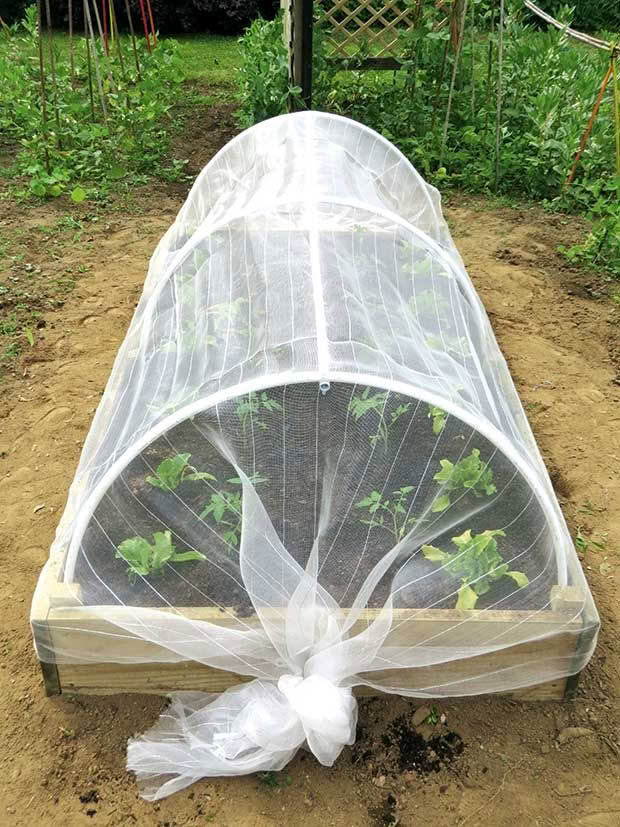
A cloche provides protection for newly planted seedlings, keeping insects, pests and adverse weather at bay.
Words & photos: Julie Legg
This cloche is for a 900mm x 1800mm raised bed.
MATERIALS
4 x lengths flexible 15mm x 2mm x 2m plastic pipe
1 x pack of 6 x 16mm tool clips (comes with screws)
3 x set of 3/16” x 38mm nuts and bolts, mushroom head zinc plated
2 x 80mm white downpipe clips
4 x 25mm screws
2m x 4m insect garden netting
Equipment: Drill, screwdriver
Cost: $60
METHOD
STEP 1: Clear soil to expose timber along each 1800mm length of raised garden and into the corners. Drill pilot holes 40mm down from top edge into the 4 corners and in the centre at either side, then secure tool clips with screws from the packet.
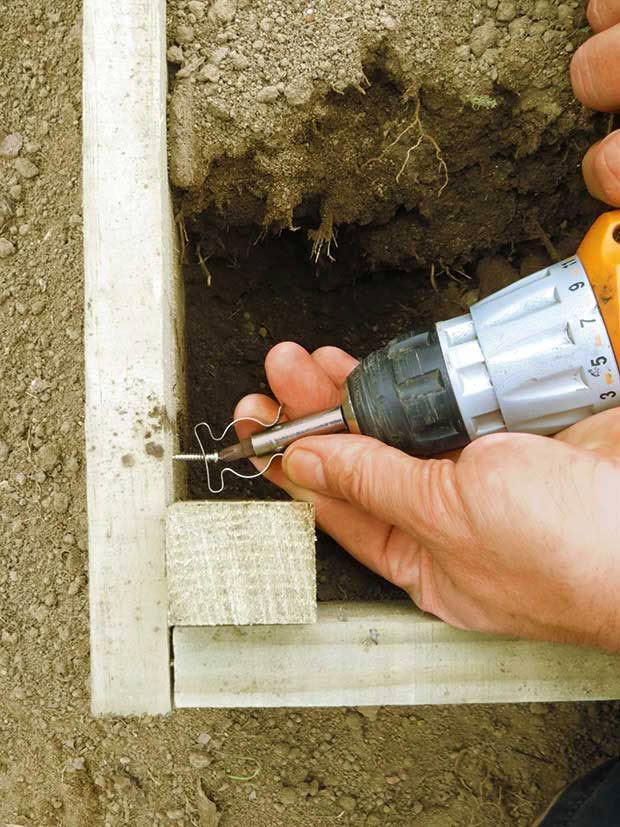
STEP 2: Clip in plastic pipe, push one end into garden bed; bend then secure into corresponding clip on opposite side to form a hoop. Repeat until 3 hoops are in place. Ensure they are an equal height by pushing pipe ends into soil.
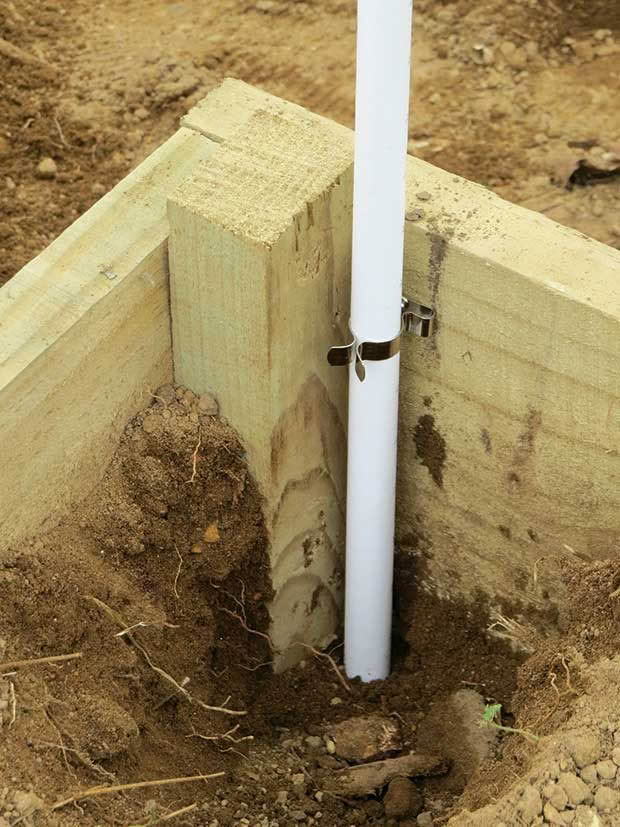
STEP 3: Measure and cut remaining length of plastic pipe for the horizontal support that connects the three hoops from the underside at the central highest point.
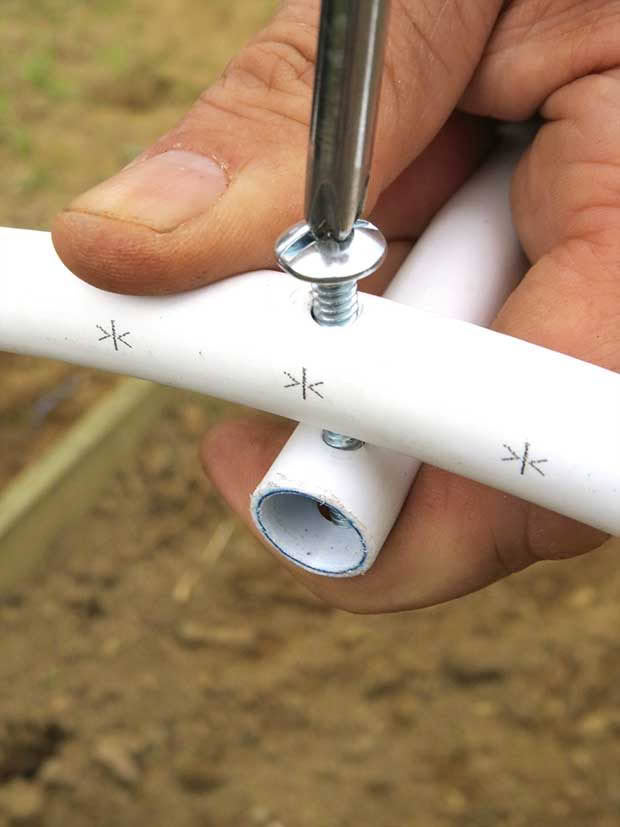
Drill a small pilot hole at the points where each pipe meets. Drill a hole for the bolts, push them into place and screw on nut to secure.
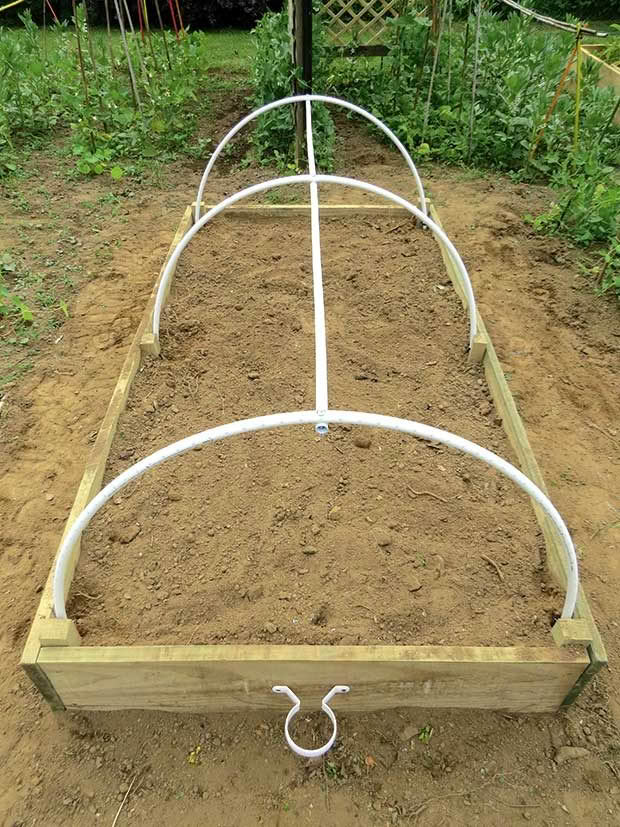
STEP 4: Screw downpipe clips to each external facing short end of the raised bed, centred top and bottom. Drape insect netting over frame to form a skirt with about 100mm around the sides of garden bed. Wrap one end of netting through downpipe and clip twice to secure.
Ensure netting is taut and repeat on other side. The netting will be snug around the sides of the raised bed and still easily accessible for weeding, harvesting and replanting.
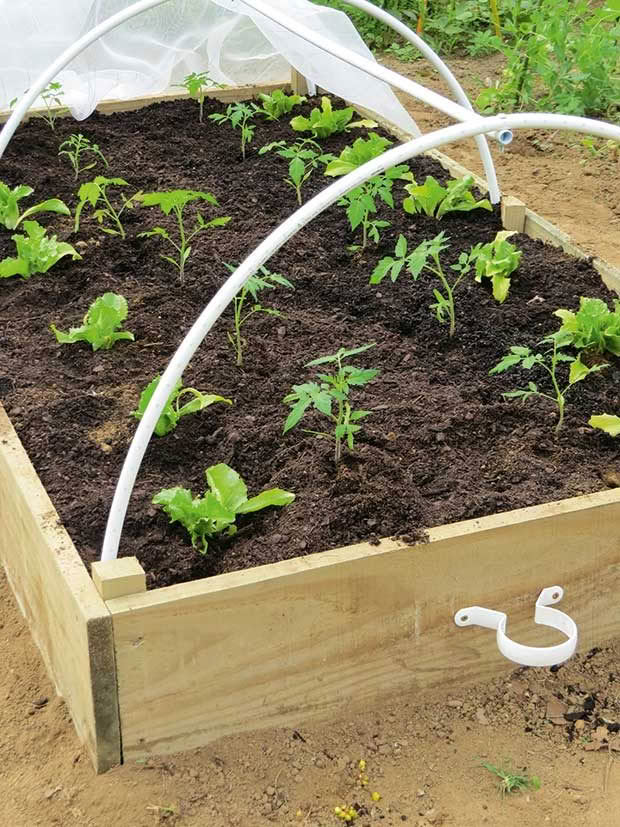
TIP:
Upcycle fine mesh netting or material that allows water and light to penetrate but keeps most insects out. In winter or late spring, a frost cloth can be used for frost-prone plants.
This project appeared in In Your Backyard: Urban Harvest, a special edition of NZ Life & Leisure about growing food in small city spaces.

